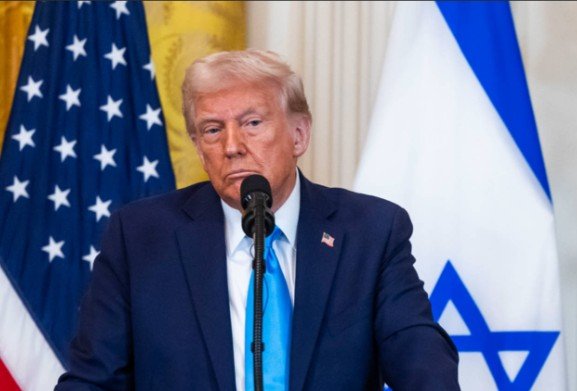Global Responses Pour In on Trump’s 20-Point Gaza Peace Plan: Divided Opinions Emerge
While some nations and leaders welcome the initiative, skepticism remains over Hamas’ acceptance and implementation
The international community has expressed a range of reactions to US President Donald Trump’s 20-point plan aimed at ending the Gaza conflict. Unveiled after talks with Israeli Prime Minister Benjamin Netanyahu, the plan seeks to bring peace to the war torn region and secure the release of remaining hostages.
Several Arab countries, including Egypt, Jordan, Qatar, Saudi Arabia, Turkey, and the UAE, have welcomed Trump’s initiative, expressing confidence in his efforts to foster a path toward peace. Indonesia and Pakistan also voiced support, while the Palestinian Authority pledged to implement reforms and reaffirmed trust in Trump’s ability to facilitate negotiations.
India has extended its backing to the plan, with Prime Minister Narendra Modi calling it a “viable pathway to long-term and sustainable peace, security, and development for the Palestinian and Israeli people, as also for the larger West Asian region.”
Hamas is reviewing the plan in “good faith,” though no official response has been issued, while the Palestinian Islamic Jihad (PIJ) described the plan as a “recipe to blow up the region.” Many residents in Gaza remain skeptical, viewing the proposal as a possible strategy to secure the release of Israeli hostages without ending the conflict.
Key provisions of Trump’s plan include:
A halt to all military operations in Gaza, with Israeli forces withdrawing to agreed lines.
Return of all Israeli hostages within 72 hours, alongside the release of Palestinian prisoners in exchange.
Transformation of Gaza into a “deradicalised, terror-free zone,” with Arab and Muslim countries contributing to security.
Oversight of Gaza by a temporary international authority, while a Palestinian technocratic authority implements policies locally.
Unrestricted humanitarian aid monitored by international organizations.
Despite the international endorsements, the plan’s success depends heavily on Hamas’ acceptance. Additionally, Netanyahu faces internal opposition from far right ministers demanding the destruction of Hamas as a precondition for any deal.
The Gaza conflict has already caused severe humanitarian consequences, with over 66,000 Palestinians killed and widespread destruction across the region. The unfolding situation highlights the challenges of implementing a comprehensive peace plan amid deep-rooted political and security complexities.




